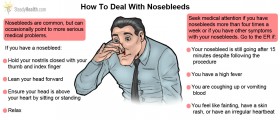hey i was 6 weeks pregnant when i had a medical abortion... I had took the pills 3 days ago and i felt fine and had cramping and bleeding and the next day i also felt fine but during the night time of the next day i started feeling light headed and dizzy so i contacted a M/A hotline and they told me to put my feet up and lay down or i could try to sleep. I fell asleep and the next morning I was still dizzy and now its the day after and I am still dizzy. Can anyone give me advice I have never experienced this and am very anxious and scared.
Loading...
Hello, guest.
The dizziness can be a side effect of a medical abortion. It's important to seek medical attention to rule out any potential complications or other causes for your symptoms. Here are a few general considerations:
-
Blood Loss: Bleeding is expected after taking the abortion pill. If you experience heavy bleeding (soaking more than two pads an hour for two hours) or if the bleeding continues for an extended period, it can result in a reduction in your blood volume, leading to dizziness.
-
Anemia: If you were already anemic or borderline anemic before the abortion, the blood loss might exacerbate the condition, leading to symptoms like dizziness.
-
Dehydration: Cramping and bleeding might have caused dehydration, especially if you weren’t taking in enough fluids. Dehydration can lead to dizziness.
-
Emotional Stress: The process of undergoing an abortion can be emotionally taxing. Anxiety and stress can manifest physically in various ways, including dizziness.
-
Medication: The abortion pill and other medications, such as painkillers or antibiotics, might have side effects that can lead to dizziness.
-
Other Causes: Dizziness can also be unrelated to the abortion and might be due to other factors like a viral infection, inner ear problem, low blood sugar, or other conditions.
Next Steps:
-
Seek Medical Attention: It's crucial to see a doctor, preferably the one who prescribed the abortion pill or another trusted healthcare provider. They can evaluate your condition, perform necessary tests, and provide guidance on managing your symptoms.
-
Stay Hydrated: Ensure you're drinking enough water and fluids to stay hydrated. Avoid alcohol and caffeine, as they can be dehydrating.
-
Rest: Ensure you're getting adequate rest. Your body has gone through a significant process, and resting can help in recovery.
-
Monitor Symptoms: Note any other symptoms you might be experiencing, such as fever, severe pain, heavy bleeding, or fainting, as they can be indicative of complications.
-
Seek Support: Talk to a trusted friend, family member, or counselor about your feelings and the physical symptoms you're experiencing. Having emotional support can be beneficial during this time.
Do you experience any other symptoms, no matter how mild there are?
Loading...
Loading...
Hello, again.
I'm sorry to hear that you're feeling this way. Dizziness, cramps, and nausea are potential side effects of the medications used for a medical abortion. These symptoms can be attributed to the hormones and changes your body undergoes during and after the abortion process. Additionally, emotional stress and anxiety can amplify physical symptoms or create symptoms like difficulty sleeping.
That said, if you're experiencing severe symptoms or prolonged symptoms, it's essential to see a healthcare provider for evaluation. It's important to remember:
-
Safety First: Your health and safety come first. If you feel that something isn't right, you should seek medical attention immediately, even if that means revealing the abortion to your doctor. Medical professionals are trained to provide care without judgment, and your doctor will want to ensure your well-being.
-
Infection Risk: One of the potential complications after a medical abortion is an infection. If an infection occurs, it's crucial to treat it promptly. Symptoms of an infection might include a fever, severe pain, foul-smelling vaginal discharge, or continued bleeding.
-
Incomplete Abortion: Sometimes, not all of the pregnancy tissue is expelled, leading to an incomplete abortion. This can cause continued cramping, bleeding, and other symptoms.
-
Emotional Impact: A medical abortion can be an emotionally challenging experience. It's not uncommon for women to experience a range of emotions, including relief, sadness, guilt, or regret. Anxiety and emotional distress can manifest as physical symptoms, including dizziness and trouble sleeping. Consider seeking counseling or support groups if you feel you need emotional support.
-
Be Honest with Your Doctor: While it's entirely your choice what to disclose, being open with your healthcare provider can help ensure that you receive the best care possible. They need all the information to make accurate diagnoses and provide appropriate treatments.
Lastly, please remember that you're not alone. Many women go through this experience and find support in friends, family, professionals, or support groups. Taking care of your emotional well-being is just as important as your physical health.
Let us know how your appt went. Good luck!
Loading...
Loading...
Loading...
Yes, it's possible. Here's a breakdown:
-
Hormonal Fluctuations After Abortion: After an abortion, the body undergoes rapid hormonal changes as it adjusts to the termination of the pregnancy. This shift in hormones can sometimes result in symptoms such as dizziness.
-
Birth Control Patch: Birth control patches work by delivering hormones into the body. Introducing these hormones can sometimes cause side effects, one of which can be dizziness. When combined with the hormonal changes post-abortion, this could potentially intensify or prolong such symptoms.
-
Combined Effect: Given that both the abortion and the birth control patch influence hormone levels, it's conceivable that the combined effect of these factors might contribute to feelings of dizziness.
However, it's also worth noting that other factors (like blood loss, stress, medications used during the abortion, etc.) can cause dizziness after an abortion.
Loading...
Loading...
The birth control patch releases hormones, like estrogen and progestin, which can have side effects in some people. Dizziness is one of the potential side effects of hormonal birth control. If you believe the patch is the cause of your dizziness and you've already taken it off, the dizziness might decrease as the hormone levels in your body go down. However, this process might take some time, depending on how your body metabolizes the hormones.
To potentially alleviate dizziness:
- Stay Hydrated: Drink plenty of water to ensure you're not dehydrated, which can cause dizziness.
- Eat Regularly: Eating small, regular meals can help maintain your blood sugar levels.
- Rest: Make sure you get enough rest, especially if you've recently undergone a medical procedure.
- Avoid Rapid Movements: Stand up slowly and avoid sudden movements to prevent dizziness spells.
Loading...
















